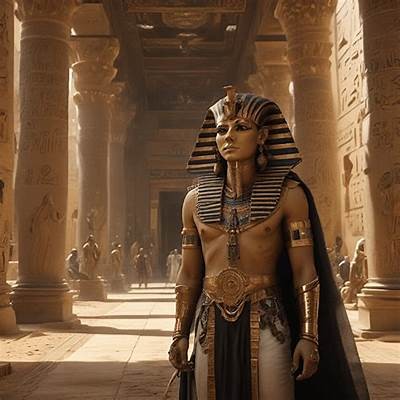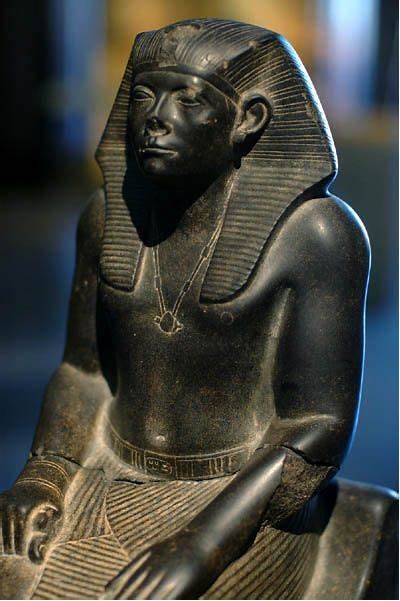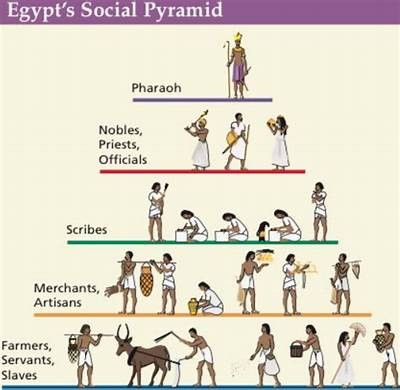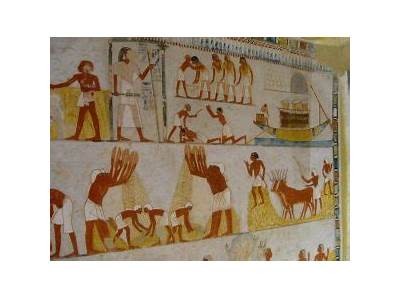Ancient Egypt is a civilization that has fascinated historians, archaeologists, and the general public alike for centuries. Known for its monumental architecture, sophisticated society, and profound burial customs, the legacy of the Pharaohs stands as a testament to their power and influence. In this article, we will delve into the life and times of the Pharaohs, exploring their role in society, their connection to the divine, and the lasting impact of their reigns on modern culture.

The Pharaoh was not just a king; he was considered a god on Earth, a divine representative of the gods who ruled over the Nile Valley. The title itself, 'Pharaoh', comes from the Egyptian word 'per-aa', meaning 'great house', which referred to the royal palace. Pharaohs were entrenched in the cultural and religious framework of Egyptian society, which believed that the Pharaoh maintained ma'at—harmony and balance in the universe.

The concept of divine kingship was pivotal in ancient Egyptian culture. Pharaohs were seen as the earthly embodiment of Horus and later, as Osiris after their death. This duality helped in solidifying the Pharaoh's position not only as a ruler but as a mediator between the gods and the people. Temples were constructed in their honor, and elaborate rituals were performed to ensure their favor, both during their lifetime and after their death.

One of the most enduring symbols of the Pharaoh's power is the pyramid. These monumental structures were built as tombs for the Pharaohs, serving as a grand statement of their status and a means of ensuring their immortality. The construction of the pyramids required vast resources, including manpower, materials, and technological skills, showcasing the Pharaoh's wealth and control over the state.

The Great Pyramid of Giza, perhaps the most famous of all, is a representation of advanced engineering and architectural prowess. It was not merely a tomb but a part of a larger complex that reflected the Pharaoh's divine connection and his needs in the afterlife. The designs and layout of these structures incorporate astronomical alignments, which served both practical and ceremonial purposes.

While the picture of a Pharaoh is often surrounded by grandeur and divinity, everyday life involved significant responsibilities. Pharaohs were expected to manage the affairs of the state, which included agricultural production, trade, taxation, and diplomatic relations. They were supported by a bureaucracy of officials who helped to enact policies and administer justice.
Hunting expeditions, feasts, and religious ceremonies also played a crucial role in a Pharaoh's life. These activities not only provided leisure but were integral in displaying their power and generosity, further reinforcing their authority in the eyes of the people. Pharaohs and Religion
The intertwining of religion and governance is one of the hallmarks of the ancient Egyptian monarchy. The Pharaoh was seen as a central figure in religious ceremonies and festivals, and their participation was believed to ensure the continued favor of the gods. Major festivals, such as the Opet Festival, celebrated the Pharaoh’s divine connection and the stability of the kingdom.
Beneath the grandeur, there existed a complex pantheon of gods that the Pharaohs had to appease. The Pharaoh's role as High Priest further underscored their religious significance, showing how political power was closely linked to spiritual authority. The Relationship with the People
The relationship between Pharaohs and their subjects was a mix of reverence and obligation. Egyptians were taught from a young age to view the Pharaoh as a divine being. However, this reverence did not mean that the Pharaoh was above scrutiny. During times of famine, war, or disaster, discontent could rise, leading to revolts or challenges to the Pharaoh's authority.
Pharaohs employed various means to maintain control, including propaganda through art and inscriptions, which depicted them in an idealized manner and stressed their achievements. Moreover, the build-up and embellishment of tombs and temples were methods of ensuring their legacy and clinging to power even after death. The Decline of the Pharaohs
The glory of the Pharaohs was not everlasting. Various factors led to the decline of their reigns, including invasions, internal strife, and economic troubles. The eventual conquest by foreign powers such as the Assyrians, Persians, Greeks, and Romans marked the end of the Pharaohs' dominance over Egypt. Yet, the cultural and historical impact of their reign remains indelible. The Legacy of the Pharaohs
The Pharaohs left an everlasting mark on history, not just within Egypt but globally. The pyramids, temples, and tombs they built serve as an eternal reminder of their quest for immortality and divine rule. Their sophisticated understanding of death and the afterlife has influenced various cultures and continues to intrigue people around the world.
Moreover, the art, religion, and architectural advancements initiated during the reign of the Pharaohs laid the foundation for the development of subsequent civilizations and cultures. Even today, the fascination with ancient Egyptian culture is evident in literature, cinema, and various forms of art. Conclusion
In conclusion, the Pharaohs were much more than mere rulers; they were central figures in the fabric of ancient Egyptian society. Their divine connection, monumental achievements, and complex relationships with their people illustrate a civilization that was both advanced and deeply spiritual. The legacy of the Pharaohs continues to inspire awe and curiosity in contemporary society, offering a glimpse into the splendor of ancient Egypt. Tags
